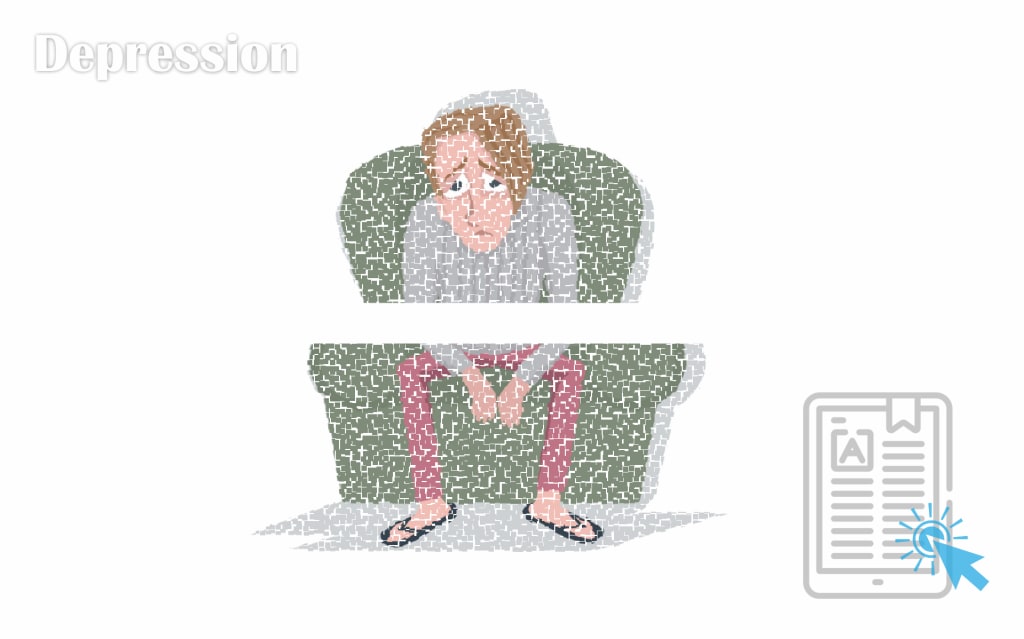Shadows Within
Illuminating the Depths of Depression and Its Unseen Struggles

Depression is a leading cause of disability worldwide.
In the United States, nearly 10% of adults suffer from depression.
However, because this is a mental illness, it can be much more difficult to understand than, for example, high cholesterol.
A major source of confusion is the difference between depression and mere melancholy.
Most people feel depressed from time to time.
Getting a bad grade, losing your job, getting into an argument, or even a rainy day can cause feelings of sadness.
Sometimes there is no trigger at all.
It appears suddenly.
Then the situation will change and this sad feeling will disappear.
Clinical depression is different.
It's a medical disorder, it's not going to cure you the way you want it to.
This condition lasts for at least two consecutive weeks and severely impairs the person's ability to work, play, and love.
Depression can have a variety of symptoms.
Depressed mood, loss of interest in things you normally enjoy, changes in appetite, feelings of worthlessness or excessive guilt, too much or too little sleep, poor concentration, Restlessness or slowness, loss of energy, or recurrent suicidal thoughts.
According to psychiatric guidelines, if you have at least five of these symptoms, you qualify for a diagnosis of depression.
And it's not just behavioral symptoms.
Depression has physical symptoms in the brain.
First of all, there are changes that can be seen with the naked eye and with X-ray vision.
These include the small frontal lobe and hippocampal volumes.
On a microscale, depression is associated with several things: abnormal transmission or depletion of certain neurotransmitters, particularly serotonin, norepinephrine, and dopamine, weakening of circadian rhythms, and identification of REM and slow-wave sleep.
change of.
The wave portion of the sleep cycle and hormonal abnormalities such as high cortisol levels and dysregulation of thyroid hormones.
However, neuroscientists still do not fully understand the causes of depression.
This appears to involve a complex interaction between genes and the environment, but no diagnostic tools can predict exactly when and where it will occur.
Also, because the symptoms of depression are invisible, it is difficult to know who is suffering, even if they appear to be doing well.
According to the National Institute of Mental Health, it takes a person with a mental illness an average of 4 years to seek help.
However, there are very effective treatments.
Medications and treatments complement each other and increase brain chemicals.
In extreme cases, electroconvulsive therapy, which mimics controlled seizures in the patient's brain, can also be very helpful.
Other promising treatments such as transcranial magnetic stimulation are also being investigated.
So, if you know someone who is struggling with depression, please gently encourage them to consider some of these options.
You can also offer to help with specific tasks, like finding a nearby therapist or making a list of questions to ask your doctor.
For people with depression, these first steps may seem insurmountable.
When we feel guilty or ashamed, we point out that depression is a disease, just like asthma or diabetes.
It's not a weakness or a personality trait.
You shouldn't expect to overcome it any more easily than you can overcome a broken arm on your own.
If you have never experienced depression yourself, avoid comparing it to when you were feeling depressed.
Comparing what you're experiencing to normal, temporary feelings of sadness can make you feel guilty for struggling.
Simply talking openly about depression can help.
For example, research shows that asking someone about suicidal thoughts
reduces their suicide risk.
Open conversations about mental illness help erode stigma
and make it easier for people to ask for help.
And the more patients seek treatment,
the more scientists will learn about depression,
and the better the treatments will get.
About the Creator
Kwandokuhle Ndethi
Born to express, not to impress.
Enjoyed the story? Support the Creator.
Subscribe for free to receive all their stories in your feed. You could also pledge your support or give them a one-off tip, letting them know you appreciate their work.






Comments
There are no comments for this story
Be the first to respond and start the conversation.